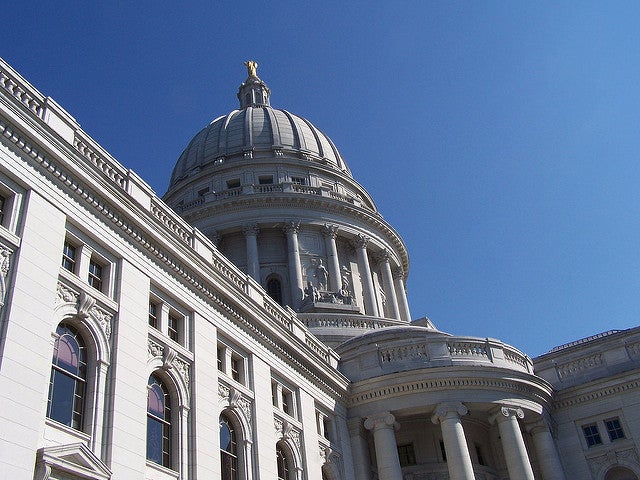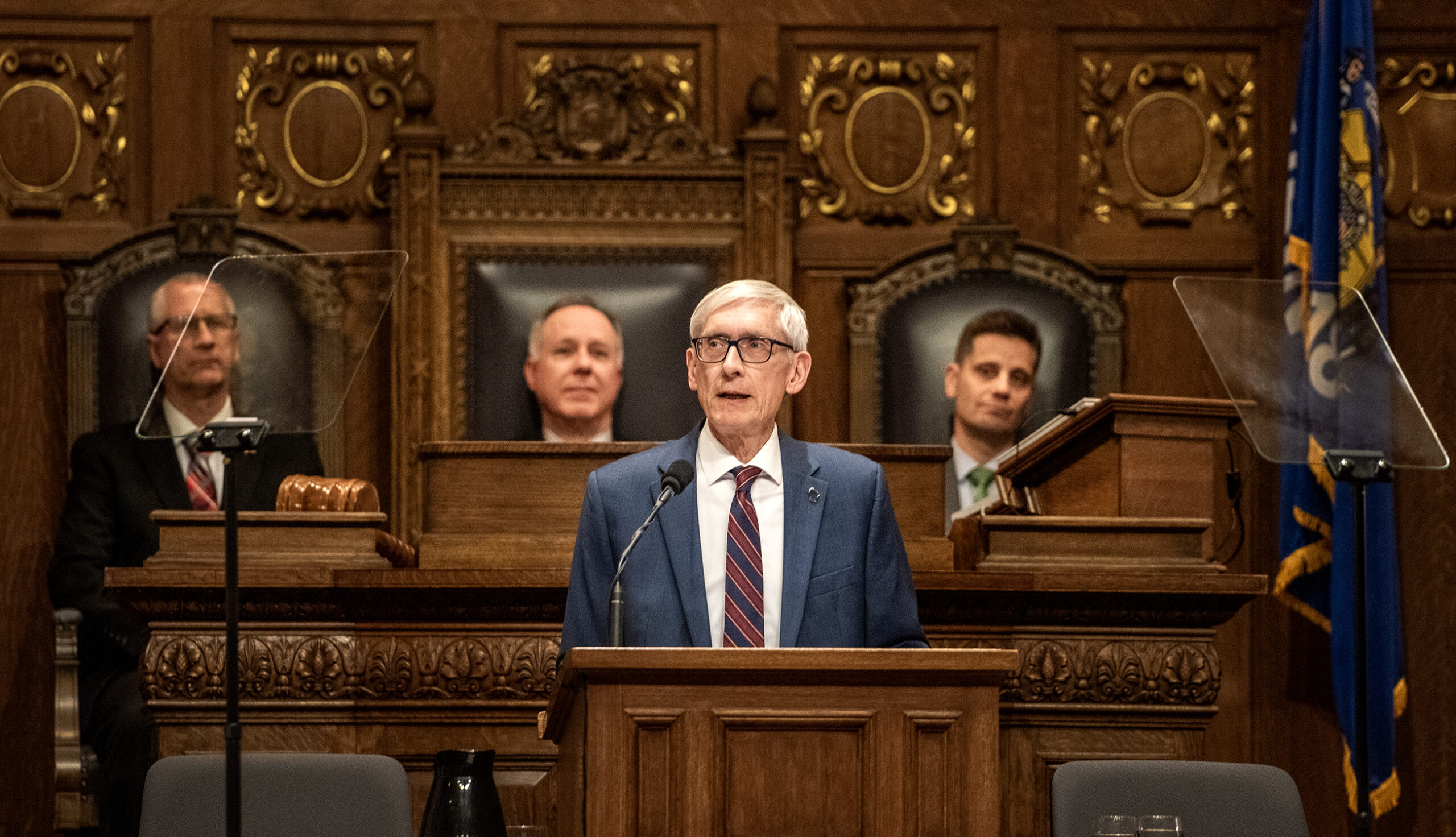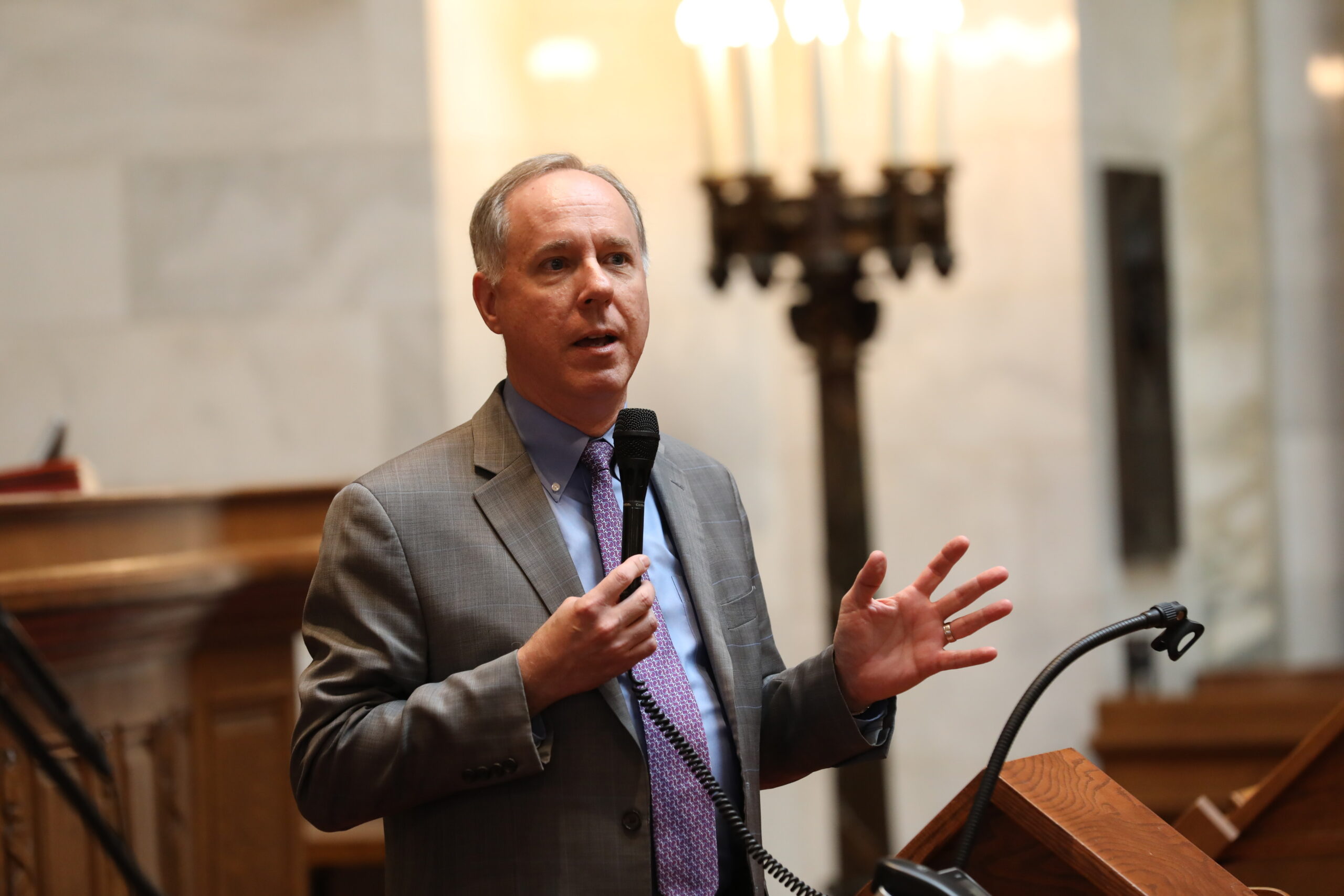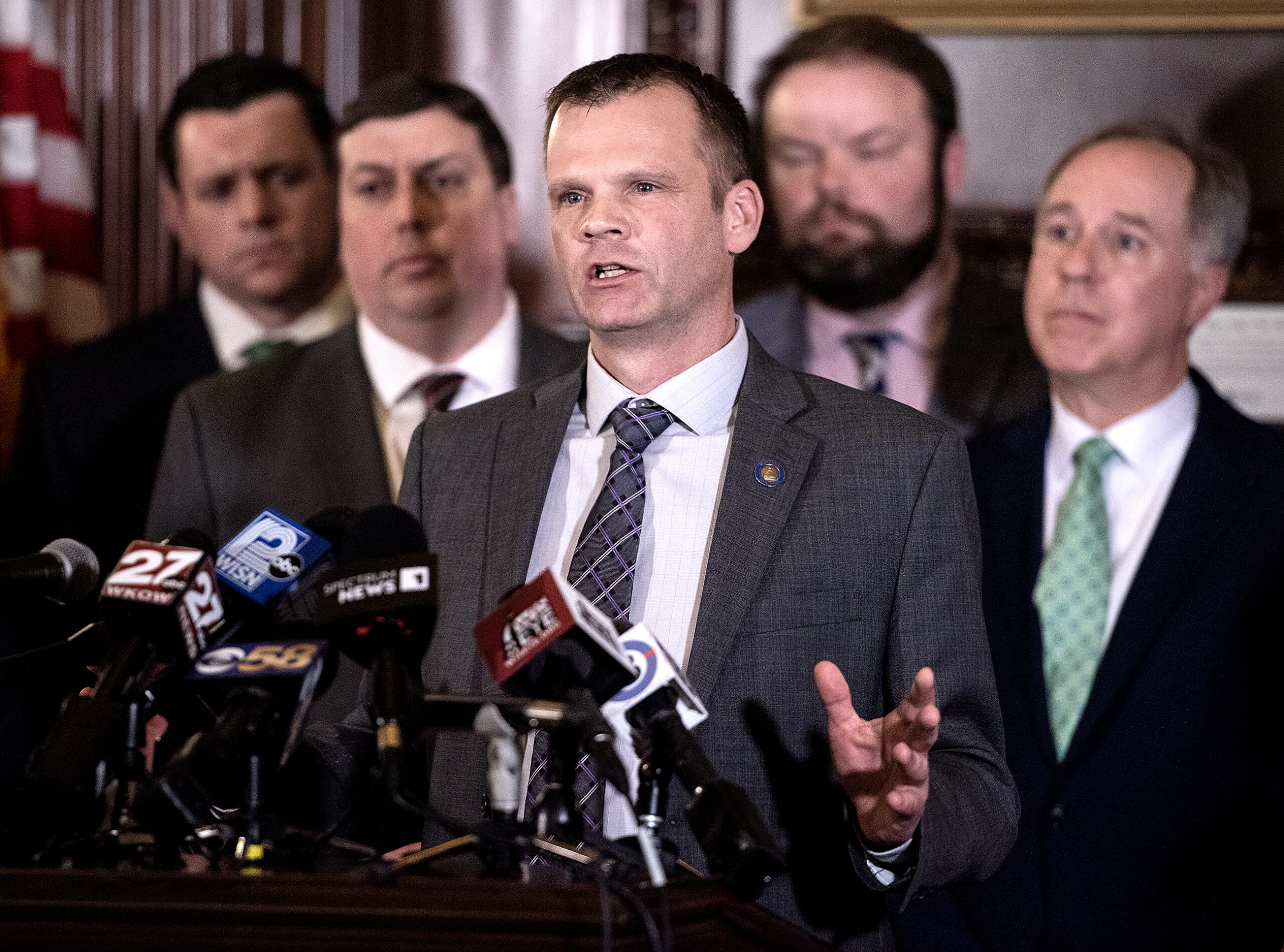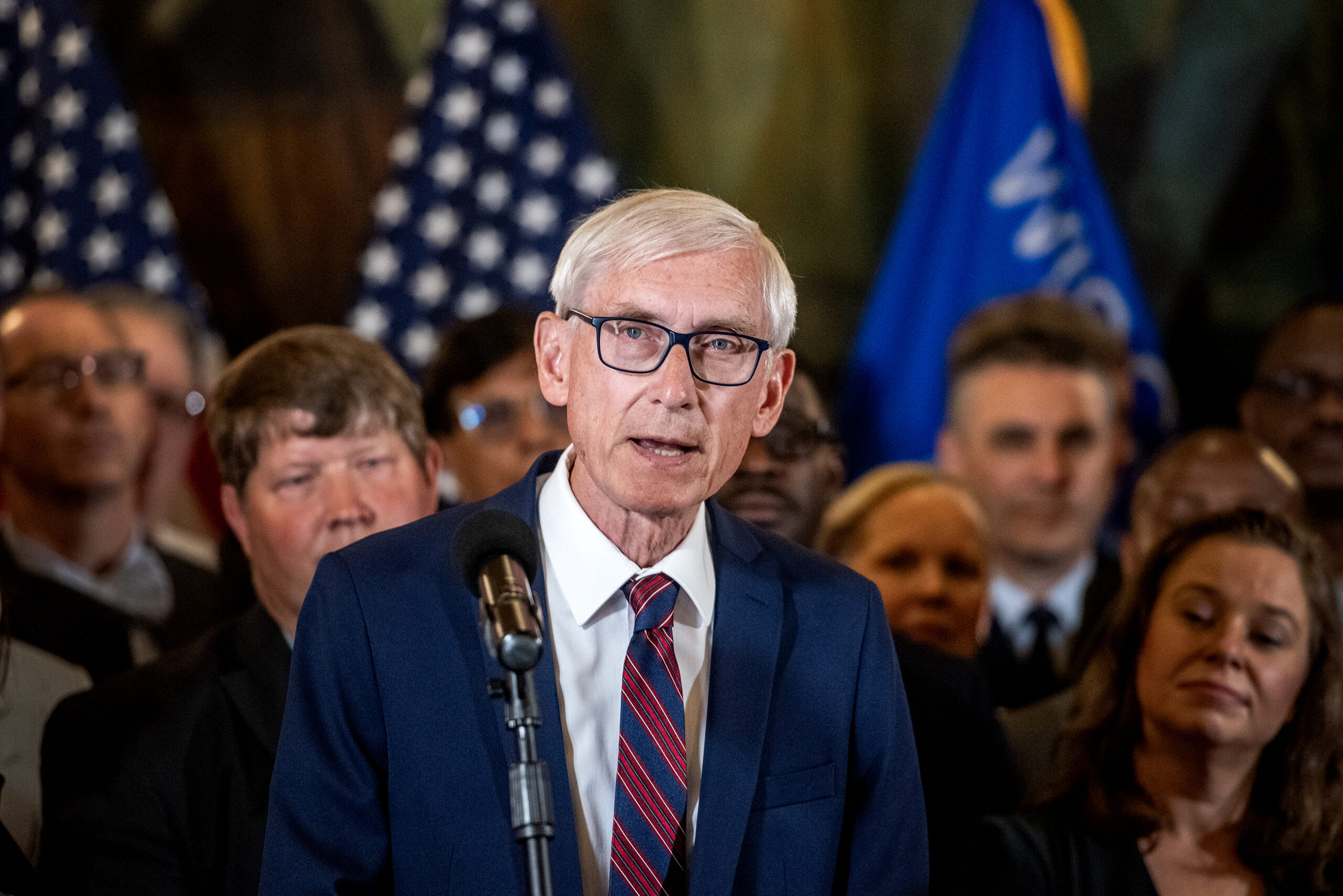On the cusp of Gov. Tony Ever’s first budget address this week, two western Wisconsin lawmakers suggest compromise and bipartisanship are a long way from happening in state government.
Freshman state Sen. Jeff Smith, D-Eau Claire, said the idea of working together got off to a rough start last December when the GOP-controlled state Assembly and Senate voted to strip the then-incoming Democratic governor and attorney general of certain powers the former Republican officeholders had.
Smith said Republican leaders in the Assembly and Senate are also playing partisan politics with the state budget before it’s been introduced.
Stay informed on the latest news
Sign up for WPR’s email newsletter.
“(Republicans are) playing this game of trying to propose their own ideas that they know are coming in the budget, but they want to be in front of the budget, when in fact, let’s just do the right thing,” Smith said. “Most of us are, at least on the Democratic side, we’re keeping our powder dry. We want to see what’s in the budget, we want to see what the governor proposes.”
Smith has experience as a lawmaker in both the majority and minority in two terms in the Assembly from 2007 to 2010, Assembly Democrats were in the minority party from 2007 to 2008 and the majority party from 2009 to 2010, when Gov. Jim Doyle, a Democrat, was in charge during Smith’s tenure.
But state Rep. Romaine Quinn, R-Barron, who has been in the Assembly since 2015, is experiencing divided government for the first time. He has a much different view of the political divide in the state.
“I don’t know how it’s considered compromise when Republicans have to do only what Gov. Evers wants. That’s not compromise,” Quinn said.
One of the first tests of how well the divided government under Evers is functioning came last week when Evers vetoed Republican plans for a middle-class tax cut that were funded differently from a middle-class cut the governor will likely propose this week.
“Wisconsin Republicans said, ‘Let’s meet Gov. Evers at his campaign pledge,’” Quinn said. “What’s funny is we’re not being bipartisan even though we passed the exact same tax cut he (Evers) campaigned on. Let’s meet him in the middle.”
Smith, the Democrat, argues if Republicans had been serious about a bipartisan tax cut solution, they would have invited Democrats to talk about it before introducing the bill. He said Democrats believe the Republican tax cut plan to use projected budget surplus dollars is unsustainable.
“The supposed surplus is for a one-time tax cut. What Gov. Evers is proposing is a sustained tax cut by capping that manufacturing tax credit,” Smith said. “Let’s get real about this and talk truly bipartisan of trying to do the right thing for everybody in the middle-class and beyond.”
Democrats have been critical of the manufacturing and agriculture tax credit enacted by Republicans in 2011.
Evers is expected to ask the Legislature to invest in public K-12 education in his first budget including $1.4 billion to bring schools up to two-thirds state funding support and another $600 million on special education funding.
In the last budget from Republican Gov. Scott Walker, Republicans increased school funding by more than $600 million.
“The increase from the last budget came only after a significant amount of cuts (from) the previous three budgets from the previous governor,” Smith said, defending Evers’ expected budget proposal.
“This is just about catching up. It’s more of a shifting of priorities,” Smith said.
Quinn said he expects the state to have about $2.5 billion in projected new revenue. He’s not sure if Republicans will be willing to commit most of that new funding to K-12 education.
“I don’t know if we can put all of our eggs in one basket, but if that’s where he (Evers) wants to start the conversation, fine,” Quinn said. “We have a large state and a lot of different ideas.”
Wisconsin Public Radio, © Copyright 2024, Board of Regents of the University of Wisconsin System and Wisconsin Educational Communications Board.

